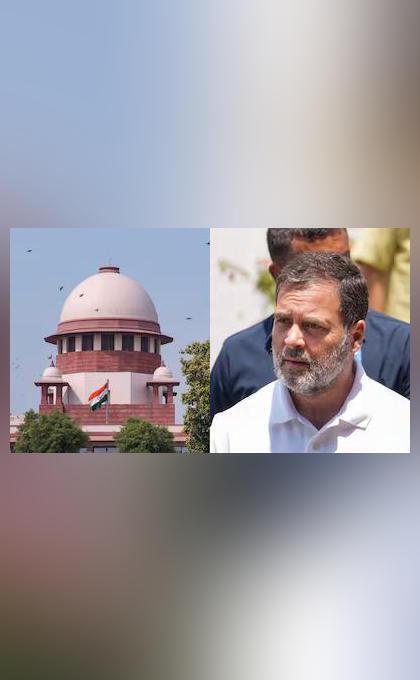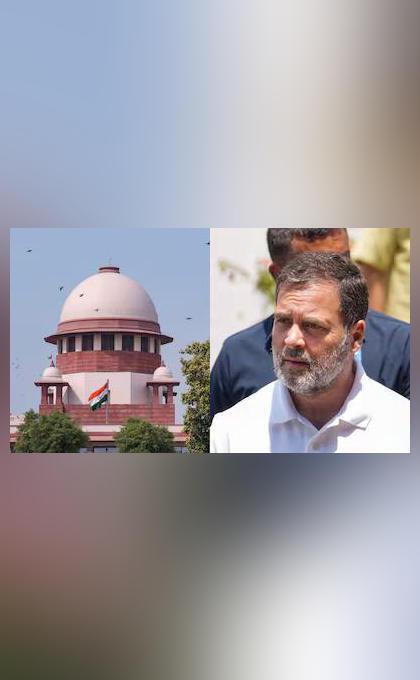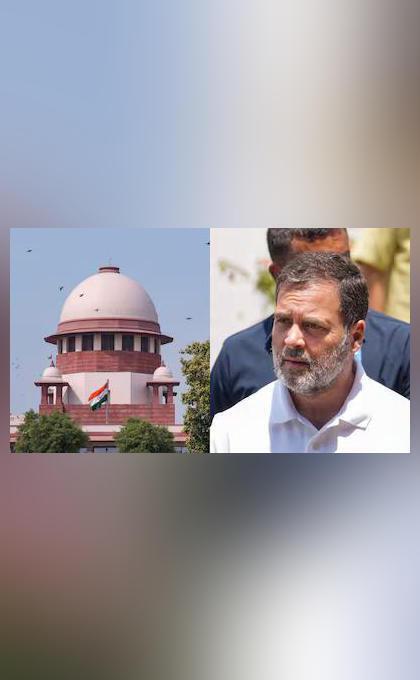
Why ask on social media & not in parliament: SC to Rahul on ‘land grab’ claim
In a recent development, the Supreme Court of India has taken a stern stance against Congress leader Rahul Gandhi over his claim that China had grabbed 2,000 sq km of Indian land. The court has stayed a defamation case against Rahul for his remarks about the Indian Army and has asked him to explain how he knows that China occupied the land in question.
Rahul Gandhi had made the claim during a rally in 2020, saying that China had grabbed 2,000 sq km of Indian land. However, when asked to provide evidence to back his claim, Rahul refused, saying that he had received the information from “reliable sources”. The Supreme Court has now pulled up Rahul Gandhi for making such a serious allegation without any concrete evidence to support it.
The court’s remarks came while hearing a petition filed by the Indian Army against Rahul’s remarks, which the army had claimed were defamatory. The court has stayed the defamation case against Rahul and has asked him to respond to the petition within three weeks.
The Supreme Court’s observation is significant because it highlights the importance of verifying information before making public statements, especially on serious issues like national security. Rahul Gandhi’s claim about China grabbing 2,000 sq km of Indian land has caused widespread concern and has been seen as a serious threat to India’s national security.
The court’s remark that Rahul should have asked such questions in Parliament instead of on social media is also noteworthy. The court is right that Parliament is the appropriate forum for discussing such serious issues, and that social media is not the right platform for making such claims.
Rahul Gandhi’s claim about China grabbing 2,000 sq km of Indian land is not the first time he has made an unsubstantiated claim about China. In the past, he has made several remarks about China, including claims that China had occupied parts of Arunachal Pradesh and had installed a radar system in the region.
However, none of these claims have been proven, and the Indian government has consistently denied them. The Indian Army has also denied Rahul’s claims, saying that the army has not lost any territory to China.
The Supreme Court’s observation is also significant because it highlights the importance of accountability in politics. Rahul Gandhi is a member of Parliament and is expected to be responsible for his words and actions. By making unsubstantiated claims about China, Rahul Gandhi has not only caused harm to the reputation of the Indian Army but also undermined the credibility of the country’s national security apparatus.
The court’s remark that Rahul should have asked such questions in Parliament instead of on social media is also noteworthy. The court is right that Parliament is the appropriate forum for discussing such serious issues, and that social media is not the right platform for making such claims.
In conclusion, the Supreme Court’s observation is a timely reminder of the importance of verifying information before making public statements, especially on serious issues like national security. Rahul Gandhi’s claim about China grabbing 2,000 sq km of Indian land is not only unsubstantiated but also has caused harm to the reputation of the Indian Army and undermined the credibility of the country’s national security apparatus.




